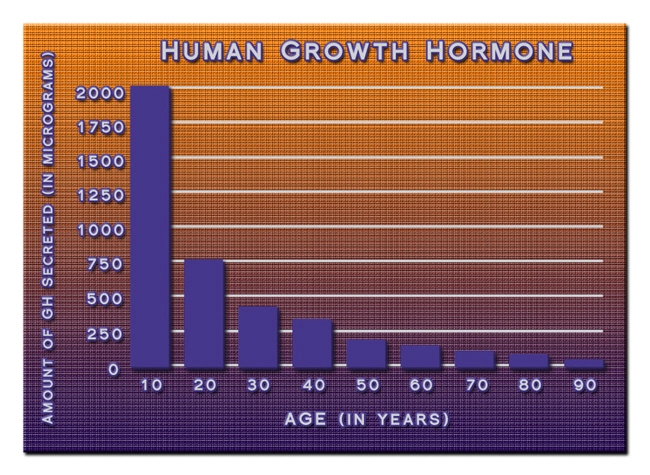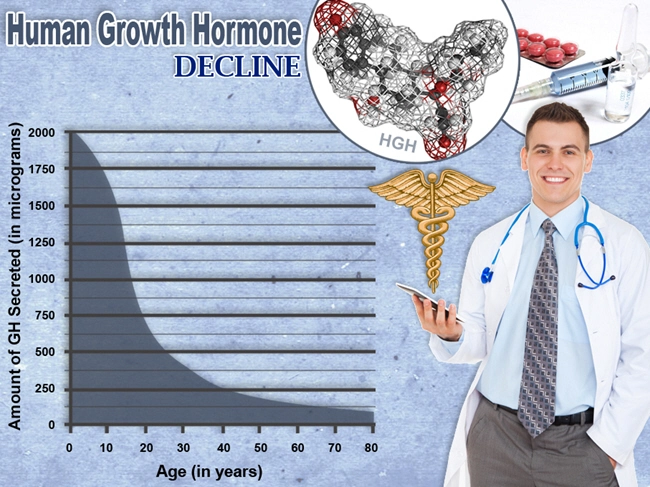
Introduction
Secondary hypogonadism, a condition characterized by low testosterone levels due to dysfunction of the hypothalamus or pituitary gland, has been increasingly recognized for its wide-ranging effects on men's health. Recent research has begun to explore its potential impact on auditory function, specifically hearing loss. This article delves into a clinical study that investigates the correlation between secondary hypogonadism and hearing loss among American males, offering insights into how hormonal imbalances might affect auditory health.
Understanding Secondary Hypogonadism
Secondary hypogonadism arises when the pituitary gland or hypothalamus fails to produce adequate levels of gonadotropin-releasing hormone (GnRH), luteinizing hormone (LH), and follicle-stimulating hormone (FSH). These hormones are crucial for stimulating the testes to produce testosterone. Symptoms can include reduced libido, erectile dysfunction, fatigue, and mood changes. However, the link to auditory function is less understood and merits further exploration.
The Clinical Study: Methodology
The study involved a cohort of American males aged 30 to 65, diagnosed with secondary hypogonadism. Participants underwent comprehensive audiological evaluations, including pure-tone audiometry, speech audiometry, and otoacoustic emissions testing. These tests were designed to assess the participants' hearing thresholds and the integrity of the cochlear function. Additionally, blood tests were conducted to measure testosterone, LH, and FSH levels.
Findings: The Connection Between Hormones and Hearing
The results of the study revealed a significant association between low testosterone levels and hearing loss. Men with lower testosterone levels exhibited higher thresholds in pure-tone audiometry, indicating poorer hearing. Furthermore, the otoacoustic emissions testing suggested that the outer hair cells of the cochlea, which are crucial for amplifying sound within the ear, were less responsive in participants with lower testosterone levels.
Potential Mechanisms
While the exact mechanisms linking secondary hypogonadism to hearing loss are not fully understood, several theories have been proposed. Testosterone receptors have been identified in the inner ear, suggesting that testosterone may play a role in maintaining cochlear health. Additionally, testosterone's anti-inflammatory properties might protect the auditory system from damage. A deficiency in testosterone could therefore compromise these protective mechanisms, leading to hearing impairment.
Implications for Treatment and Management
The findings of this study underscore the importance of considering hormonal health in the context of auditory function. For men diagnosed with secondary hypogonadism, regular hearing assessments may be warranted. Moreover, testosterone replacement therapy (TRT) could potentially mitigate the risk of hearing loss. However, further research is needed to establish the efficacy and safety of TRT in this context.
Conclusion
This clinical study highlights a significant yet underrecognized link between secondary hypogonadism and hearing loss in American males. As our understanding of the interplay between hormonal imbalances and auditory function grows, it becomes increasingly important for healthcare providers to consider comprehensive health assessments that include both hormonal and auditory evaluations. By addressing secondary hypogonadism, we may not only improve overall quality of life but also preserve the vital sense of hearing.
Future Directions
Future research should focus on longitudinal studies to better understand the progression of hearing loss in men with secondary hypogonadism and the potential benefits of early intervention. Additionally, exploring the molecular pathways through which testosterone influences auditory function could provide valuable insights into developing targeted therapies.
In conclusion, the relationship between secondary hypogonadism and hearing loss opens new avenues for research and clinical practice, emphasizing the need for a holistic approach to men's health.
Contact Us Today For A Free Consultation
Dear Patient,
Once you have completing the above contact form, for security purposes and confirmation, please confirm your information by calling us.
Please call now: 1-800-380-5339.
Welcoming You To Our Clinic, Professor Tom Henderson.

- Secondary Hypogonadism in American Men: Cardiovascular Risks and Management Strategies [Last Updated On: February 26th, 2025] [Originally Added On: February 26th, 2025]
- Secondary Hypogonadism: Impacts on Cognitive Function and Treatment Options in American Men [Last Updated On: March 18th, 2025] [Originally Added On: March 18th, 2025]
- Secondary Hypogonadism: Understanding Its Impact on Sleep and Health in American Men [Last Updated On: March 18th, 2025] [Originally Added On: March 18th, 2025]
- Stress-Induced Secondary Hypogonadism in American Males: Causes and Management Strategies [Last Updated On: March 18th, 2025] [Originally Added On: March 18th, 2025]
- Secondary Hypogonadism: Symptoms, Diagnosis, and Management Strategies for American Men [Last Updated On: March 18th, 2025] [Originally Added On: March 18th, 2025]
- Secondary Hypogonadism: Understanding Its Profound Psychological Impacts on American Men [Last Updated On: March 19th, 2025] [Originally Added On: March 19th, 2025]
- Genetic Insights into Secondary Hypogonadism in American Males: Diagnosis and Treatment [Last Updated On: March 19th, 2025] [Originally Added On: March 19th, 2025]
- Secondary Hypogonadism in American Males: Impact on Energy and Treatment Options [Last Updated On: March 20th, 2025] [Originally Added On: March 20th, 2025]
- Secondary Hypogonadism and Prostate Health: Impacts, Diagnosis, and Management Strategies [Last Updated On: March 21st, 2025] [Originally Added On: March 21st, 2025]
- Support Systems Crucial for Managing Secondary Hypogonadism in American Men [Last Updated On: March 21st, 2025] [Originally Added On: March 21st, 2025]
- Secondary Hypogonadism and Hair Loss: Causes, Diagnosis, and Treatment for American Males [Last Updated On: March 21st, 2025] [Originally Added On: March 21st, 2025]
- Secondary Hypogonadism: Impacts on Body Composition and Health in American Men [Last Updated On: March 22nd, 2025] [Originally Added On: March 22nd, 2025]
- Exercise Strategies for Managing Secondary Hypogonadism in American Males [Last Updated On: March 22nd, 2025] [Originally Added On: March 22nd, 2025]
- Secondary Hypogonadism in American Males: Pituitary Gland's Role and Treatment Options [Last Updated On: March 22nd, 2025] [Originally Added On: March 22nd, 2025]
- Alternative Therapies for Secondary Hypogonadism: A Comprehensive Guide for American Men [Last Updated On: March 22nd, 2025] [Originally Added On: March 22nd, 2025]
- Secondary Hypogonadism and Anemia: Understanding and Managing the Connection in American Males [Last Updated On: March 22nd, 2025] [Originally Added On: March 22nd, 2025]
- Secondary Hypogonadism's Impact on Immune Function in American Men [Last Updated On: March 23rd, 2025] [Originally Added On: March 23rd, 2025]
- Secondary Hypogonadism's Impact on Skin Health in American Men: Causes and Management [Last Updated On: March 23rd, 2025] [Originally Added On: March 23rd, 2025]
- Environmental Factors Driving Secondary Hypogonadism in American Men: A Comprehensive Analysis [Last Updated On: March 23rd, 2025] [Originally Added On: March 23rd, 2025]
- Secondary Hypogonadism: Impacts on Health and Importance of Early Detection in American Men [Last Updated On: March 24th, 2025] [Originally Added On: March 24th, 2025]
- Secondary Hypogonadism's Impact on Kidney Function: Symptoms, Diagnosis, and Management [Last Updated On: March 24th, 2025] [Originally Added On: March 24th, 2025]
- Nutrition's Role in Managing Secondary Hypogonadism in American Males [Last Updated On: March 24th, 2025] [Originally Added On: March 24th, 2025]
- Understanding Secondary Hypogonadism: Causes, Symptoms, and Treatment in American Males [Last Updated On: March 24th, 2025] [Originally Added On: March 24th, 2025]
- Secondary Hypogonadism and Mood Disorders in American Men: Links and Management Strategies [Last Updated On: March 25th, 2025] [Originally Added On: March 25th, 2025]
- Secondary Hypogonadism and Diabetes: Impact and Management in American Males [Last Updated On: March 25th, 2025] [Originally Added On: March 25th, 2025]
- Thyroid Function's Impact on Secondary Hypogonadism in American Males: Diagnosis and Management [Last Updated On: March 25th, 2025] [Originally Added On: March 25th, 2025]
- Understanding Secondary Hypogonadism: Symptoms, Diagnosis, and Management in American Males [Last Updated On: March 25th, 2025] [Originally Added On: March 25th, 2025]
- Secondary Hypogonadism: Impacts and Management Strategies for American Men's Quality of Life [Last Updated On: March 25th, 2025] [Originally Added On: March 25th, 2025]
- Managing Fatigue in American Males with Secondary Hypogonadism: Causes and Strategies [Last Updated On: March 26th, 2025] [Originally Added On: March 26th, 2025]
- Understanding and Managing Secondary Hypogonadism in American Males: Symptoms, Causes, and Treatments [Last Updated On: March 26th, 2025] [Originally Added On: March 26th, 2025]
- Secondary Hypogonadism in American Males: Lifestyle Factors and Medical Interventions [Last Updated On: March 26th, 2025] [Originally Added On: March 26th, 2025]
- Secondary Hypogonadism: Impact on Libido and Treatment Options for American Males [Last Updated On: March 26th, 2025] [Originally Added On: March 26th, 2025]
- Secondary Hypogonadism and Liver Health: A Critical Connection for American Males [Last Updated On: March 26th, 2025] [Originally Added On: March 26th, 2025]
- Secondary Hypogonadism: Causes, Diagnosis, and Management for American Males [Last Updated On: March 26th, 2025] [Originally Added On: March 26th, 2025]
- Secondary Hypogonadism's Impact on Fat Distribution in American Men [Last Updated On: March 26th, 2025] [Originally Added On: March 26th, 2025]
- Managing Secondary Hypogonadism: Stress, Nutrition, and Holistic Approaches for American Males [Last Updated On: March 26th, 2025] [Originally Added On: March 26th, 2025]
- Exercise as a Key Strategy in Managing Secondary Hypogonadism in American Men [Last Updated On: March 27th, 2025] [Originally Added On: March 27th, 2025]
- Secondary Hypogonadism's Impact on Physical Performance in American Men [Last Updated On: March 27th, 2025] [Originally Added On: March 27th, 2025]
- Secondary Hypogonadism: Understanding Causes, Impacts, and Management in American Men [Last Updated On: March 27th, 2025] [Originally Added On: March 27th, 2025]
- Secondary Hypogonadism: Impact on Emotional Health in American Men [Last Updated On: March 27th, 2025] [Originally Added On: March 27th, 2025]
- Sleep Disorders and Secondary Hypogonadism: Mechanisms, Evidence, and Treatment Implications in American Men [Last Updated On: March 27th, 2025] [Originally Added On: March 27th, 2025]
- Secondary Hypogonadism: Impact on Muscle Strength and Treatment in American Men [Last Updated On: March 27th, 2025] [Originally Added On: March 27th, 2025]
- Secondary Hypogonadism's Psychological Impact on American Men: A Comprehensive Overview [Last Updated On: March 27th, 2025] [Originally Added On: March 27th, 2025]
- Secondary Hypogonadism's Impact on Bone Density in American Men: Causes and Management [Last Updated On: March 28th, 2025] [Originally Added On: March 28th, 2025]
- Secondary Hypogonadism and Autoimmune Diseases: Insights and Management in American Men [Last Updated On: March 28th, 2025] [Originally Added On: March 28th, 2025]
- Secondary Hypogonadism: Impacts on American Men's Social Life and Health [Last Updated On: March 28th, 2025] [Originally Added On: March 28th, 2025]
- Secondary Hypogonadism and Cardiovascular Health: Risks and Management Strategies for American Males [Last Updated On: March 28th, 2025] [Originally Added On: March 28th, 2025]
- Secondary Hypogonadism's Impact on Mental Health in American Males: A Comprehensive Overview [Last Updated On: March 28th, 2025] [Originally Added On: March 28th, 2025]
- Secondary Hypogonadism's Impact on Mood in American Men: Causes, Effects, and Management [Last Updated On: March 28th, 2025] [Originally Added On: March 28th, 2025]
- Secondary Hypogonadism: Symptoms, Causes, and Treatment for American Males [Last Updated On: March 28th, 2025] [Originally Added On: March 28th, 2025]
- Secondary Hypogonadism in American Males: Causes, Monitoring, and Management Strategies [Last Updated On: March 30th, 2025] [Originally Added On: March 30th, 2025]
- Secondary Hypogonadism's Impact on Cognitive Function in American Men [Last Updated On: March 30th, 2025] [Originally Added On: March 30th, 2025]
- Understanding Secondary Hypogonadism: Symptoms, Diagnosis, and Hormonal Therapies for American Males [Last Updated On: March 31st, 2025] [Originally Added On: March 31st, 2025]
- Secondary Hypogonadism: Impact on Energy, Vitality, and American Men's Health [Last Updated On: April 2nd, 2025] [Originally Added On: April 2nd, 2025]
- Managing Secondary Hypogonadism: The Role of Diet in Hormonal Health [Last Updated On: April 3rd, 2025] [Originally Added On: April 3rd, 2025]
- Secondary Hypogonadism: Impact on Weight and Management Strategies for American Males [Last Updated On: April 4th, 2025] [Originally Added On: April 4th, 2025]
- Understanding Secondary Hypogonadism: Causes, Symptoms, and Management for American Males [Last Updated On: April 6th, 2025] [Originally Added On: April 6th, 2025]
- Secondary Hypogonadism: Impacts on Men's Health and Relationships in America [Last Updated On: April 7th, 2025] [Originally Added On: April 7th, 2025]
- Sleep's Impact on Secondary Hypogonadism in American Males: A Comprehensive Overview [Last Updated On: April 8th, 2025] [Originally Added On: April 8th, 2025]
- Secondary Hypogonadism's Impact on Emotional Resilience in American Men [Last Updated On: April 8th, 2025] [Originally Added On: April 8th, 2025]
- Community Support Enhances Management of Secondary Hypogonadism in American Men [Last Updated On: April 9th, 2025] [Originally Added On: April 9th, 2025]
- Secondary Hypogonadism in American Males: Holistic Treatment and Management Strategies [Last Updated On: April 9th, 2025] [Originally Added On: April 9th, 2025]
- Secondary Hypogonadism's Impact on Cognitive Function in American Men [Last Updated On: April 10th, 2025] [Originally Added On: April 10th, 2025]
- Secondary Hypogonadism: Impacts and Management for American Men's Daily Life [Last Updated On: April 10th, 2025] [Originally Added On: April 10th, 2025]
- Understanding Secondary Hypogonadism: Symptoms, Causes, and Treatment in American Males [Last Updated On: April 11th, 2025] [Originally Added On: April 11th, 2025]
- Secondary Hypogonadism in American Males: Causes, Symptoms, and Personalized Treatment [Last Updated On: April 12th, 2025] [Originally Added On: April 12th, 2025]
- Secondary Hypogonadism: Impacts on Mental Health and Holistic Management Strategies [Last Updated On: April 12th, 2025] [Originally Added On: April 12th, 2025]
- Managing Secondary Hypogonadism in American Men: A Comprehensive Approach [Last Updated On: April 13th, 2025] [Originally Added On: April 13th, 2025]
- Managing Secondary Hypogonadism: Symptoms, Causes, and Treatment in American Males [Last Updated On: April 15th, 2025] [Originally Added On: April 15th, 2025]
- Secondary Hypogonadism: Emotional Impacts and Comprehensive Management Strategies [Last Updated On: April 16th, 2025] [Originally Added On: April 16th, 2025]
- Managing Secondary Hypogonadism: Importance of Regular Health Check-ups for American Males [Last Updated On: April 16th, 2025] [Originally Added On: April 16th, 2025]
- Secondary Hypogonadism: Impacts on Men's Vitality and Management Strategies [Last Updated On: April 16th, 2025] [Originally Added On: April 16th, 2025]
- Understanding Secondary Hypogonadism: Causes, Symptoms, and Management for American Males [Last Updated On: April 17th, 2025] [Originally Added On: April 17th, 2025]
- Secondary Hypogonadism in American Males: Lifestyle Impact and Management Strategies [Last Updated On: April 17th, 2025] [Originally Added On: April 17th, 2025]
- Secondary Hypogonadism: Symptoms, Causes, and Management in American Males [Last Updated On: April 17th, 2025] [Originally Added On: April 17th, 2025]
- Nutrition's Role in Managing Secondary Hypogonadism: Boosting Testosterone Naturally [Last Updated On: April 19th, 2025] [Originally Added On: April 19th, 2025]
- Secondary Hypogonadism: Impacts on Muscle, Bone, and Cardiovascular Health in American Men [Last Updated On: April 19th, 2025] [Originally Added On: April 19th, 2025]
- Secondary Hypogonadism: Impact on Self-Esteem and Treatment Options for American Men [Last Updated On: April 20th, 2025] [Originally Added On: April 20th, 2025]
- Understanding Secondary Hypogonadism: Causes, Impacts, and Management in American Males [Last Updated On: April 21st, 2025] [Originally Added On: April 21st, 2025]
- Secondary Hypogonadism in American Men: Symptoms, Diagnosis, and Management Strategies [Last Updated On: April 21st, 2025] [Originally Added On: April 21st, 2025]








